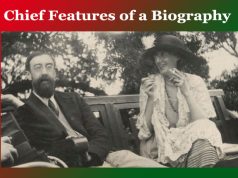The Novel: Chief Features
The Novel: Chief Features
The novel is a versatile and expansive literary form that has evolved over centuries, encompassing various styles, genres, and themes. Its chief features make it a unique and powerful means of storytelling, capturing the human experience’s complexities. Let’s delve into the key characteristics that define a novel.
Narrative Prose:
Prose Form: Unlike poetry or drama, novels are written in prose. This allows for a straightforward and flexible narrative, enabling the author to delve into intricate details, character development, and the exploration of ideas.
Length and Scope:
Extended Length: Novels are longer than short stories, providing ample space for the development of multiple characters, intricate plotlines, and thematic exploration.
Scope: Novels often cover a broad spectrum of human experiences, allowing authors to explore social, cultural, psychological, and philosophical dimensions in depth.
Character Development:
Complex Characters: Novels thrive on well-developed characters with depth and complexity. Readers often connect with characters as they evolve, facing challenges, making choices, and undergoing personal growth.
Plot Complexity:
Multifaceted Plots: Novels can encompass multiple plotlines and subplots, weaving intricate narratives that engage readers over an extended period. This complexity allows for a rich exploration of themes and ideas.
Setting and Atmosphere:
Detailed Settings: Novels often provide detailed descriptions of settings, creating immersive atmospheres that contribute to the overall reading experience.
Time and Place: The novel’s length allows for the exploration of different time periods and geographical locations, offering readers a diverse and expansive view of the world.
Point of View:
Multiple Perspectives: Novels frequently employ various points of view, allowing readers to see the story from different characters’ perspectives. This technique adds depth and nuance to the narrative.
Thematic Exploration:
Philosophical Depth: Novels are well-suited for exploring complex themes and philosophical ideas. Authors use the extended format to delve into the nuances of human existence, morality, societal issues, and more.
Social Commentary:
Reflection of Society: Many novels serve as a mirror to society, addressing and critiquing social, political, and cultural issues. Through fictional narratives, authors can shed light on real-world problems and provoke thought.
Evolution of the Form:
Adaptability: The novel form has adapted and evolved over time, giving rise to various genres such as historical fiction, science fiction, fantasy, and more. This adaptability ensures that novels remain relevant and appealing to diverse audiences.
Emotional Impact:
Emotional Resonance: Novels can evoke a wide range of emotions in readers. Whether through humor, tragedy, or suspense, authors use the novel form to create powerful emotional connections with their audience.
In conclusion, the novel is a literary form with remarkable flexibility, allowing authors to explore the depths of human experience, societal complexities, and the vast realms of imagination. Its chief features, including narrative prose, length, character development, and thematic exploration, contribute to its enduring appeal and ability to captivate readers across cultures and generations. 0 0 0.
Some Critical Essays on Novel
- The Theme of George Eliot’s Novel Middlemarch
- Joseph Conrad’s novel ‘Heart of Darkness’-Characterisation of Marlow
- Use of Wit and Irony in the Novel Pride and Prejudice
- Heathcliff -A Characterisation
- Charles Dicken’s Novel ‘Great Expectation’ as a Bildungsroman
- The Theme of Love in Pride and Prejudice
- The Art of Characterisation in Henry Fielding’s novel, Tom Jones
- James Joyce’s ‘A Portrait the Artist as a Young Man’ as a Stream of Consciousness Novel
- Autobiographical Elements in The Vicar of Wakefield
- Religious and Moral Lesson in the Novel Vicar of Wakefield
- The Theme of Oliver Goldsmith’s novel The Vicar of Wakefield
- Charlotte Bronte’s novel ‘Jane Eyre’ — A Brief Comment
- Carlo Collodi’s Novel ‘The Adventures of Pinocchio’ –A Brief Comment
- George Orwell’s Novel ‘The Animal Farm’ –A Brief Comment
- Jack London’s Novel ‘The Call of the Wild’ –A Brief Comment
- Charlotte Bronte’s novel ‘Jane Eyre’ -A Critical Study
- The Adventure of Pinocchio– A Critical Study
- Voltaire’s Novel ‘Candide- A Brief Comment







